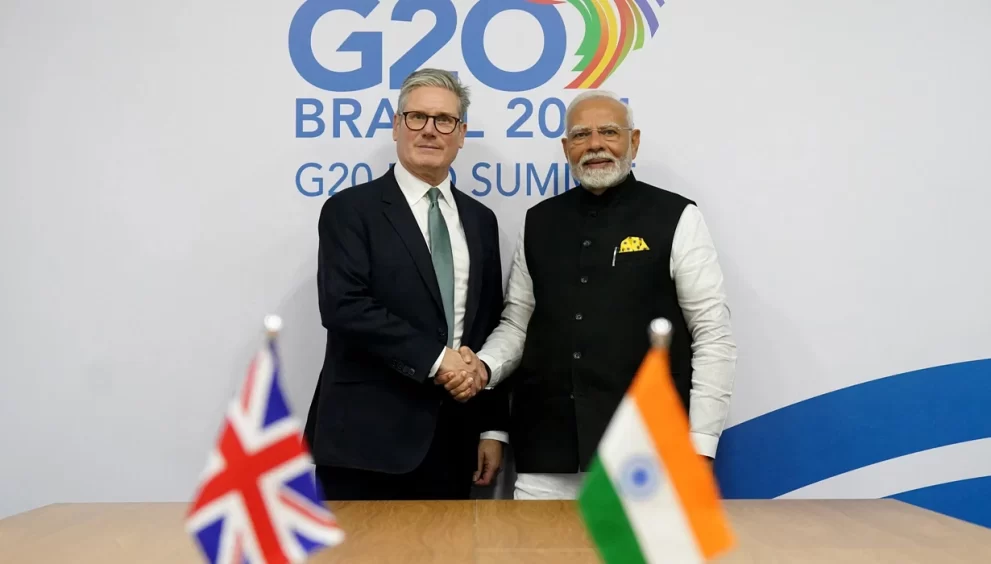The United Kingdom and India are expected to sign a significant free trade agreement on Thursday during Prime Minister Narendra Modi’s visit to London. The deal will lower tariffs on a range of goods including textiles, whisky, and automobiles, while expanding business access to each other’s markets.
After three years of intermittent talks, the two nations concluded negotiations in May, motivated in part by global trade uncertainties. This agreement, seen as a long-anticipated milestone, aims to boost bilateral trade by an estimated £25.5 billion (approximately $34 billion) by 2040. It is slated to take effect once it secures approvals from the UK Parliament and India’s federal cabinet, which is expected within the next year.
UK Prime Minister Keir Starmer described the agreement as a major achievement for the country, highlighting its potential to generate thousands of jobs and provide new growth opportunities across the economy.
The signing marks Modi’s fourth trip to the UK since becoming Prime Minister in 2014. Alongside the trade deal, the two leaders will also endorse a broader strategic partnership that includes collaboration on defence, climate change, and law enforcement.
Under the terms of the trade pact, India will immediately reduce import duties on Scotch whisky from 150% to 75%, with further reductions down to 40% over the next ten years. Tariffs on British-made cars will also be lowered from over 100% to 10% under a phased quota system.
In exchange, Indian producers—particularly in the electric and hybrid vehicle sectors—will gain easier access to the UK market under similar quotas. Indian officials have indicated that nearly all of the country’s exports to the UK, including textiles, will benefit from zero tariffs, while 90% of UK tariff lines will see reductions.
This represents the UK’s most notable trade deal since exiting the European Union in 2020. However, while the agreement is expected to add £4.8 billion annually to the British economy by 2040, this remains modest relative to the country’s total GDP, which stood at £2.6 trillion in 2024.
The deal also includes provisions to streamline short-term business travel between the two countries, although it does not cover visa arrangements. Additionally, both countries have agreed to eliminate the requirement for workers on temporary assignments to pay social security contributions in both jurisdictions.
UK companies will gain access to India’s government procurement market, including sectors like clean energy. The agreement also opens up various service industries such as insurance.
India was unsuccessful in seeking an exemption from the UK’s upcoming Carbon Border Adjustment Mechanism, which will impose additional taxes on carbon-intensive imports starting in 2027.
Negotiations continue on a separate bilateral investment treaty, which has been discussed in parallel with the trade talks but has not yet been finalised.



